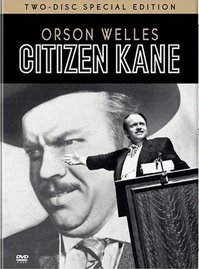“Dear Gayle,
Congratulations!
Please consider the following two points:
First, as leader, you will want to always know where you are on your journeys in making decisions. Thus, keep track of your changing answers to the following questions (all in the present tense):
* Where are you coming from?
* Where are you wanting to go in answering your issue?
* What are you waiting for?
* Who are you wise ones and what do they essentially advise?
* What are the pros and cons of your issue?
* What are the “Powers That Be” specifically saying?
* What is your own agenda?
* What facts and reasons are you contending with?
* What insights and oversights are emerging in your decision-making process?
* How are you telling the story of your decision?
* What losses are you willing to risk to gain what you can only hope for?
* How are you determining that the answer you have discerned is the right one?
Second, as leader, you will want to aim for the highest level of success that you can define in operational terms, or as I call it “Exemplary Operating Success”.
Here’s how I define it.
Exemplary Operating Success
When your senior leaders determine that the organization presents, on a real-time basis, sufficient exemplary and actionable evidence to show actual or virtual fulfillment of the following nine conditions, then your organization has achieved exemplary success for the fiscal year in question.
Condition 1. Your organization has an effective, systematic approach, responsive to the multiple requirements of Leadership; Strategic Planning; Customer or Market Focus; Measurement, Analysis, and Knowledge Management; Workforce Focus; Process Management; and Results.
Condition 2. Your approaches are fully deployed without significant weaknesses or gaps in any areas or work units.
Condition 3. Your organization has a fact-based, systematic evaluation process in place; improvement and organizational learning are key management tools; there is clear evidence of refinement and innovation backed by organizational-level analysis and sharing.
Condition 4. Your approaches are well integrated with your organization’s needs identified in response to Condition 1.
Condition 5. Your organization reports current performance is excellent in most areas of importance.
Condition 6. Your organization reports excellent improvement trends and/or sustained excellent performance levels in most areas.
Condition 7. Your organization reports demonstrated industry and benchmark leadership in many areas.
Condition 8. Your organization reports results that address most key customer, market, process, and action plan requirements.
Condition 9. Your senior leaders agree at their leadership review meeting to recommend to you that your organization submit to examination and feedback by a team of independent examiners for the purpose of confirming exemplary success.
Obviously, to reach such an exemplary level of operational success, you may have to work on this for several years.
But it can be accomplished.
For example, please consider Heroic Leadership: Best Practices from a 450-Year-Old Company That Changed the World by Chris Lowney. With an eye on best practices, you will be able to jump way ahead of the learning curve. Thanks for the question."
What do you think?
Please include your comment here or contact me to discuss.
Thanks.
John Darrouzet



















































No comments:
Post a Comment